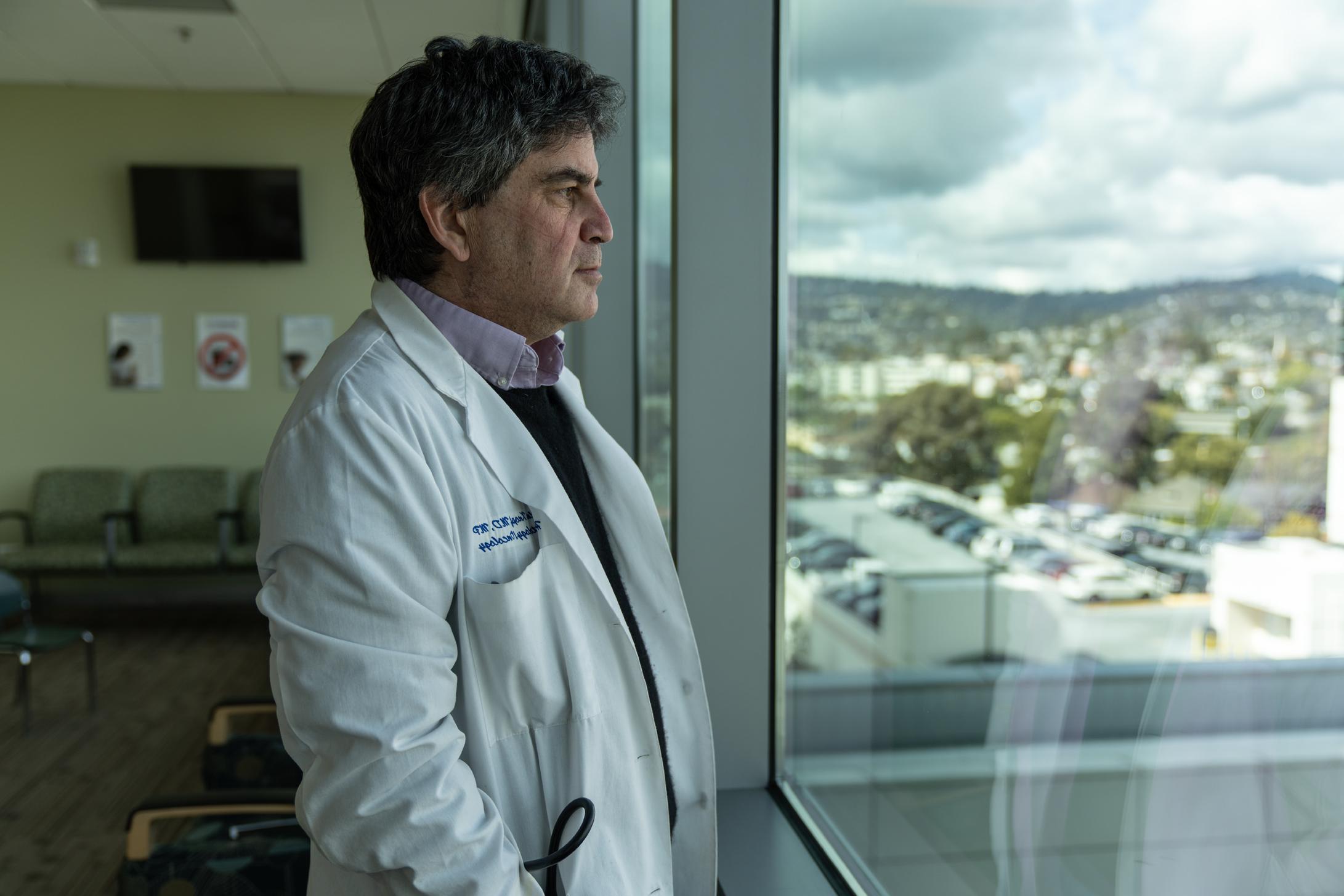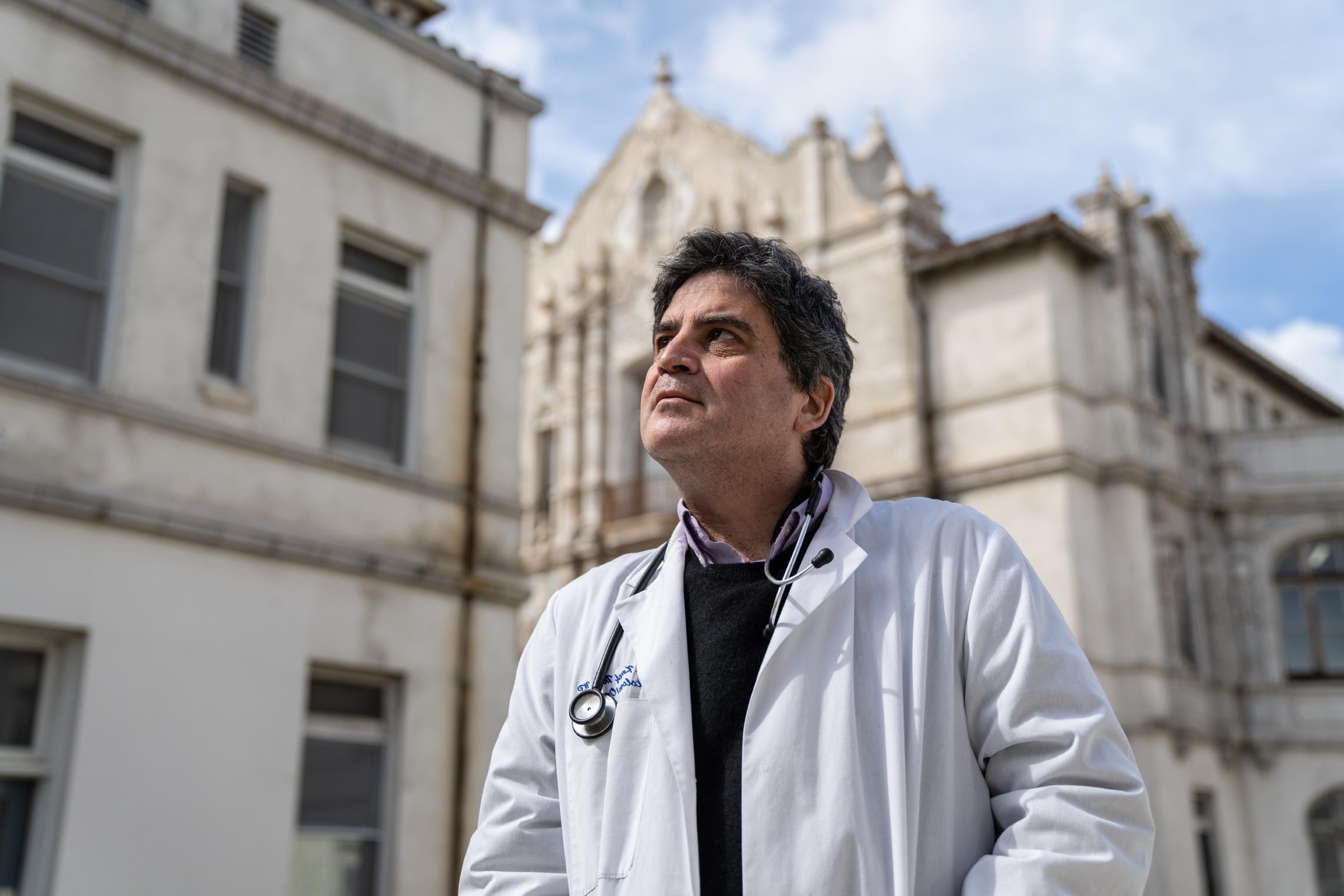
“When a patient has cancer, we want them to have the best possible outcome. We treat them as if they were our own family member. We provide culturally appropriate care. Every year, we have better and better medicine, so better ability to alter the course of their cancer.”
MEET
Kevin Knopf, MD, MPH
Hematology/Oncology
Highland Hospital
When I was a medical student, my mother was diagnosed with breast cancer. I went with her to an oncology visit, and the doctor said, “I think you’ve got a 90% chance of cure.” I thought that was a great thing to be able to tell a patient at a vulnerable time.
I studied mechanical engineering as an undergraduate because I’m interested in how things work. Engineering is about finding the best solutions to problems. This has influenced my work both in the clinic and in research. An engineering approach is to do just what you need to do to solve problems simply and try to optimize the solution. So I developed a research agenda in health services research, which is about determining the optimal treatment for cancer patients. This includes studying health economics and health disparities, which in large part are due to economic factors.
We oncologists always become very close with our cancer patients. We find those long-term relationships very meaningful. We are oncologists all the time, so we are always thinking about our patients, at work and when we’re not at work.
When a patient has a malignancy, we want them to have the best possible outcome. We try to treat our patients as if they were our own family member. What would we want to be able to offer a family member in the same situation? Sometimes patients will ask us what we’d do if they were our brother, sister, or wife. We respond to that and provide culturally appropriate care at Alameda Health System as much as possible.
As a result of the advances in molecular biology, we have developed dramatically more effective medicines for cancer and our outcomes improve year by year. In breast cancer treatment, several newer drugs have dramatically increased our chances to cure patients.
A major theme of cancer care at AHS is providing health equity, our goal being to give patients the same high-quality care they’d receive anywhere else. This is a place where patients can feel comfortable.
Some of our patients don’t speak English or face other barriers with the medical system, so patient navigation is crucial. Our patients may have missed opportunities to have regular screenings and mammograms and they often present with more advanced disease. It may be harder for them to get to our clinic because of childcare, missing work, or a financial burden. Having a navigator is crucial for being a calming force, getting them where they need to go, and coordinating their care.
This is a very mission-driven place. I am extremely proud of the oncology program we are building here.

“This is a very mission-driven place, and I’m very proud of the oncology program here.”
